
The countdown to the holidays has begun. And despite the ongoing pandemic, there is plenty to look forward to. A respite from work, reunions with family and friends, and of course, the sumptuous Christmas feasts.
But along the merry-making comes the threat of food illnesses. According to the Centers for Disease Control and Prevention (CDC), food poisoning cases occur most frequently during November and December, the festive season of the year.
With the holiday festivities drawing near, consider brushing up on these essential food safety tips to keep your holiday cooking and feasting fun and healthy.
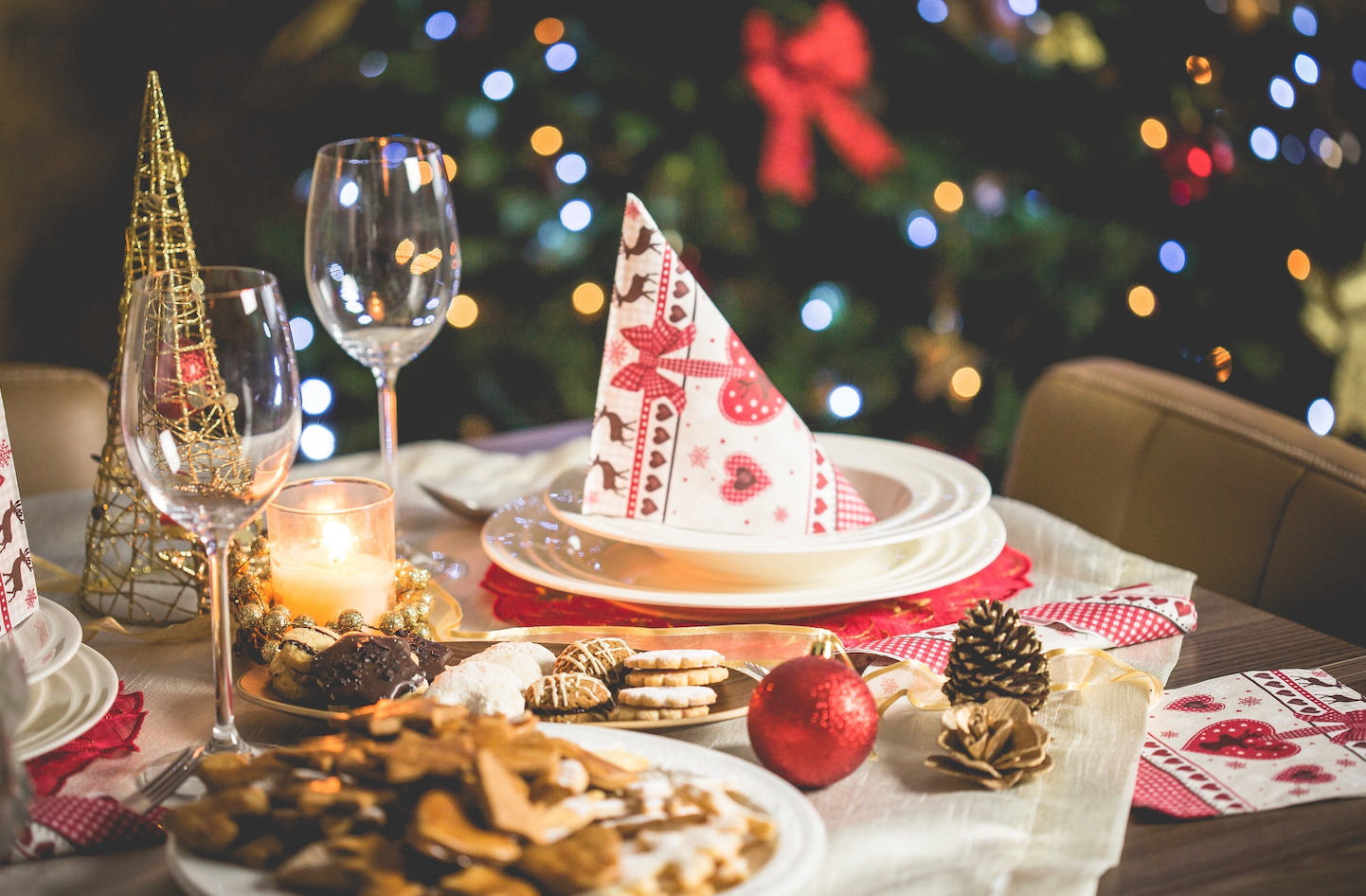
- Clean, Separate, Cook, Chill
Pandemic or not, CDC’s four steps to food safety are very useful. Keep this in mind the moment you step out of the grocery store.
Clean: Always wash your hands before, during, or after handling of food. Especially for uncooked meat or eggs, clean all the surfaces these foods will touch.
Separate: Separate raw meat, poultry, seafood, and their juices away from other foods: from the moment you arrange them in your grocery cart, to how they are bagged, and all the way to storing them in your refrigerator or freezer.
Cook: Always cook the meats to the right temperature. Make sure they’ve reached optimal temperatures to kill the germs (see CDC page for recommended temperatures.) Do not rely on the color, the smell of the meat, or your instinct. Be safe than sorry, use a food thermometer instead.
Chill: Always refrigerate or freeze perishable food promptly (within two hours of purchase). One hour if food were stored in a hot car or any hot place. Refrigerator should be kept at 40°F and or below, freezer at 0° or below. Have the same vigilance with leftovers.
Check out CDC’s food safety page to learn more about these four steps.
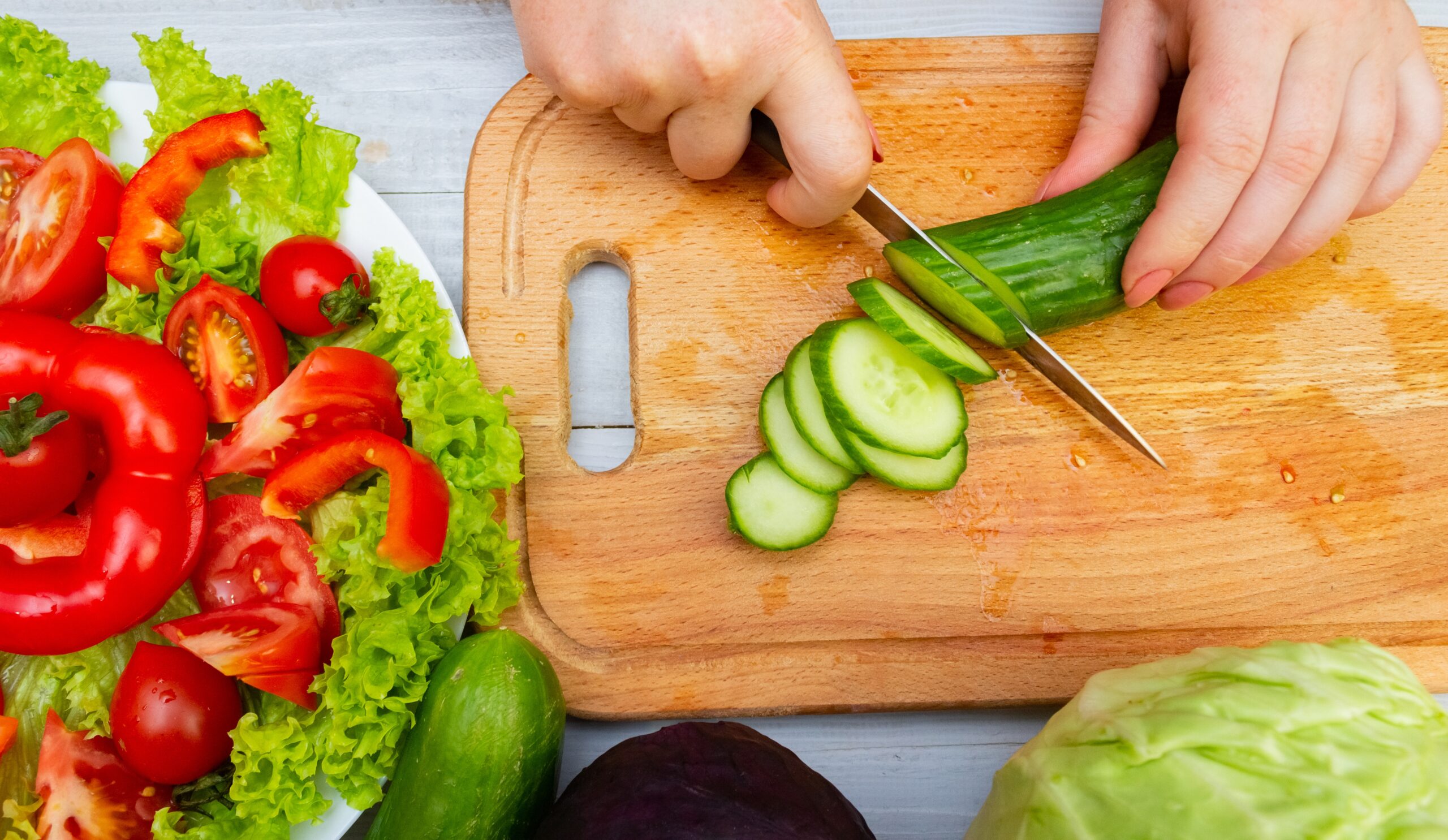
- Avoid food cross-contamination.
So you’ve separated your raw meat from vegetables, fruits, and other types of food. Great. Another thing you must do to avoid cross-contamination is to have a different cutting or chopping board for meat and for fresh produce, like fruits and veggies. This way, you can lessen chances of cross-contamination.
- Treat your deli meats with caution.
What’s a Christmas feast without a charcuterie board to wow your guests? And deli meats always make an excellent pair to a bottle of wine. What won’t be great, though, is catching germs.
Cold cuts can be a source of Listeria monocytogenes, causing food poisoning that could be fatal. To prevent this from happening, consume the cold cuts as close to the date of purchase as possible. Rule of thumb is: two weeks if it’s commercially sealed or packaged deli meats, and three to five days if it’s from the deli counter.
But if you’re pregnant or immunocompromised, it’s best to skip the deli meats entirely.
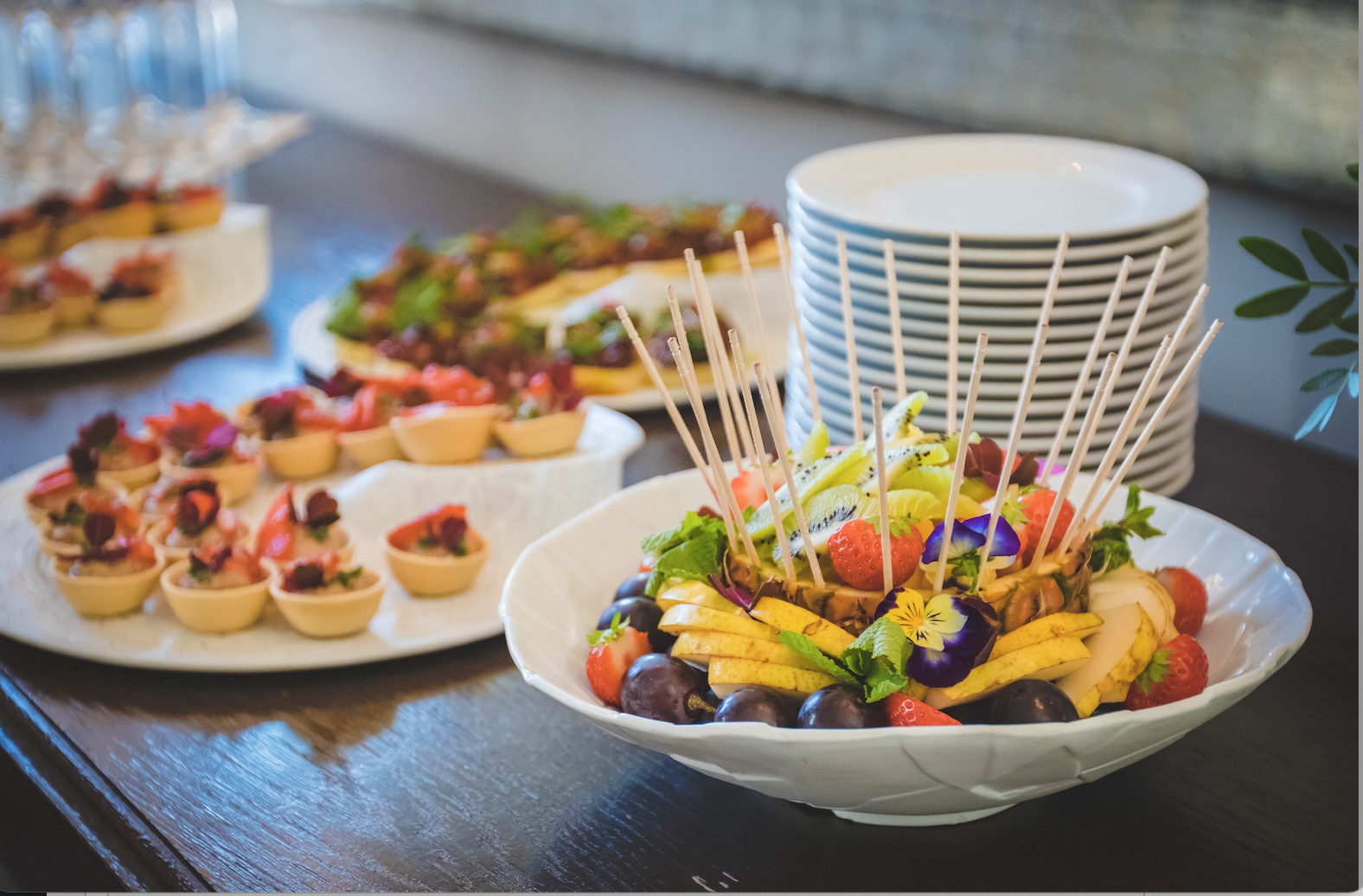
- Freshen up your holiday buffet.
Whether you’re hosting an elaborate dinner party, or arranging a buffet consisting of homemade cooking and potlucks from guests, it’s best to be food safety-savvy. As a general rule, hot and cold food can sit out in room temperature for only two hours.
Even if you’ve set your plating of a dish to a tee, food scientists recommend serving smaller amounts of a dish, and putting the rest for safekeeping, until the need for replenishing arises.
If you’ve spent the whole day prepping for dinner, assign someone else to be in charge of freshening up the holiday buffet. Remind him or her to change the serving plates too.
- Avoid bad eggs.
Eggs are delicious, plus they’re essential in making holiday favorites like eggnog, hollandaise sauce, Caesar salad dressing, and tiramisu. To reduce chances of getting salmonella, the CDC advises using pasteurized eggs for these dishes.
Keep in mind that salmonella can live in both the outside and inside of eggs, so it’s wise to keeps eggs separate from other foods.
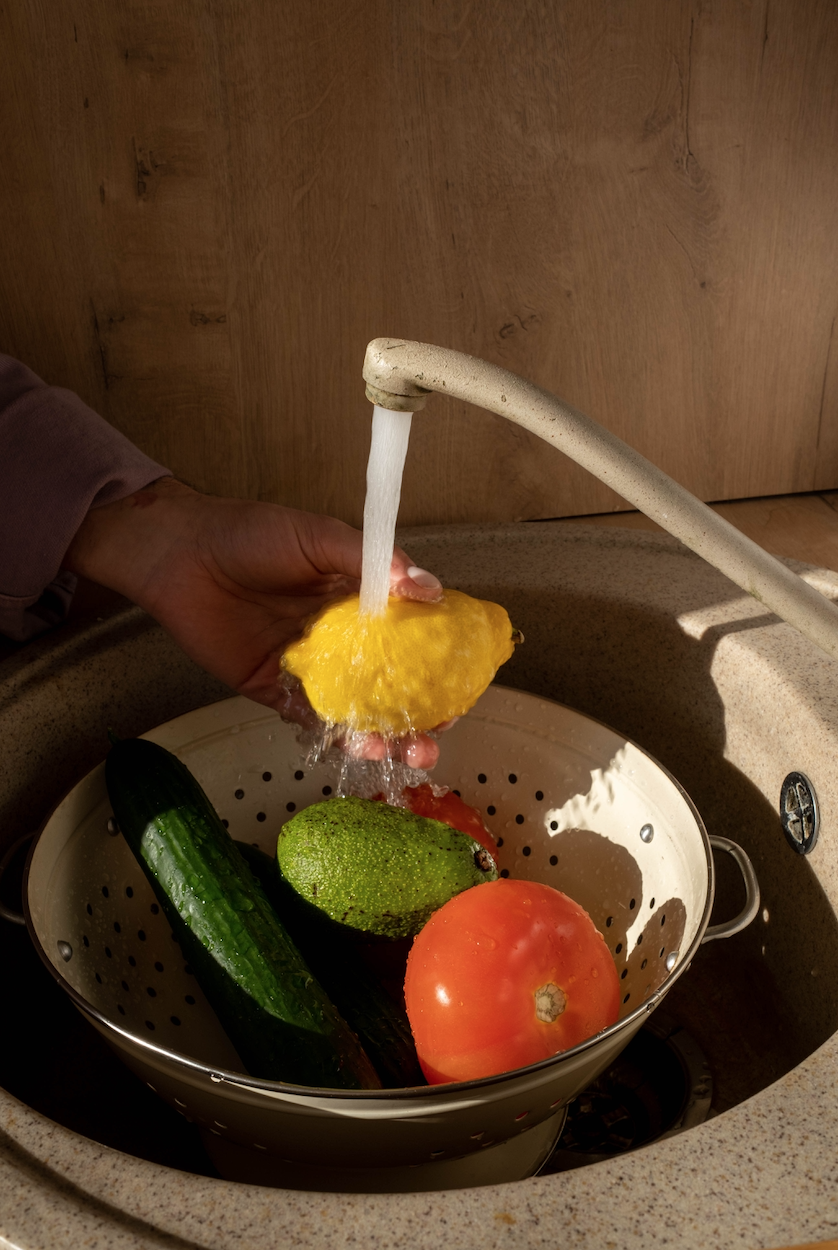
- Always wash your fruits and vegetables.
Serving a fresh salad for starters and a platter of fresh fruits for dessert are always a welcome addition to Christmas dinners. But you may be wondering how you can keep them germ-free, especially because they are served fresh or uncooked.
Experts say never disregard the power of a good washing. All you need is running water and some paper towels to remove unwanted soil, chemicals, pesticides and microbes. Even if the skins are not edible, and you’re thinking you’re removing them anyway, you should still wash the entire fruit or vegetable before chopping, serving, and eating it.
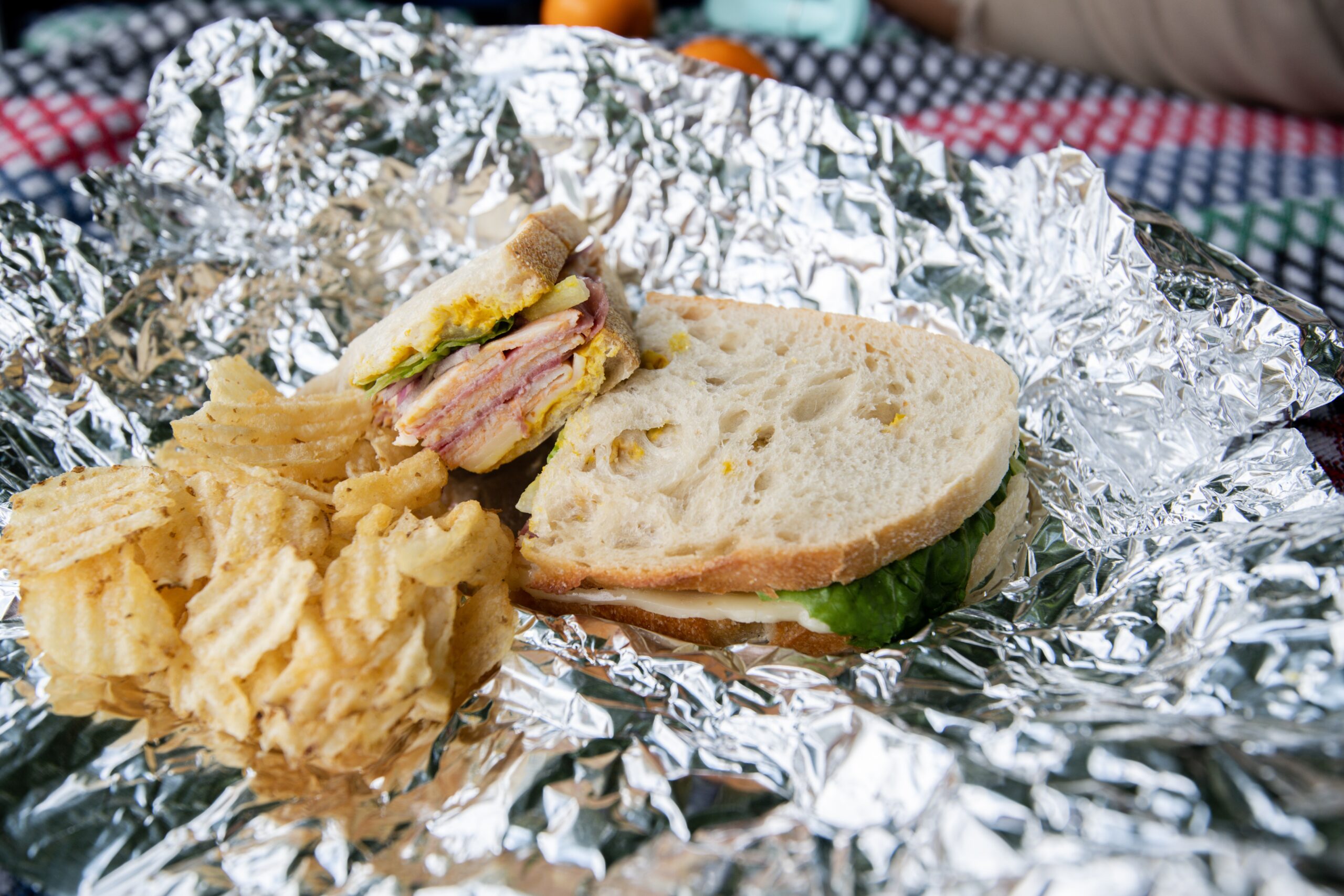
- Keep your leftovers safe.
‘Tis the season for many leftovers! Which is good news for those who tirelessly prep, shop, and cook up a storm in the kitchen. But there’s one problem: if you don’t store leftovers promptly, they can become breeding ground for germs. Does that mean leftover food are hazardous?
They don’t have to be. Simply follow this as a general rule: promptly refrigerate leftovers. They shouldn’t be sitting in room temperature for more than two hours before they make their way in your ref.
Eat leftovers within a week. To reheat hot food, microwave it until it’s hot throughout and very steamy. If you prefer them to last longer, store them in the freezer, and consume within one to two months.
However, if there’s something iffy about the leftovers—how it looks, or smells, or even tastes, you can forego the issue of worldwide food wastage. At times like this, it’s best to live by the old adage: when you’re in doubt, throw it out.
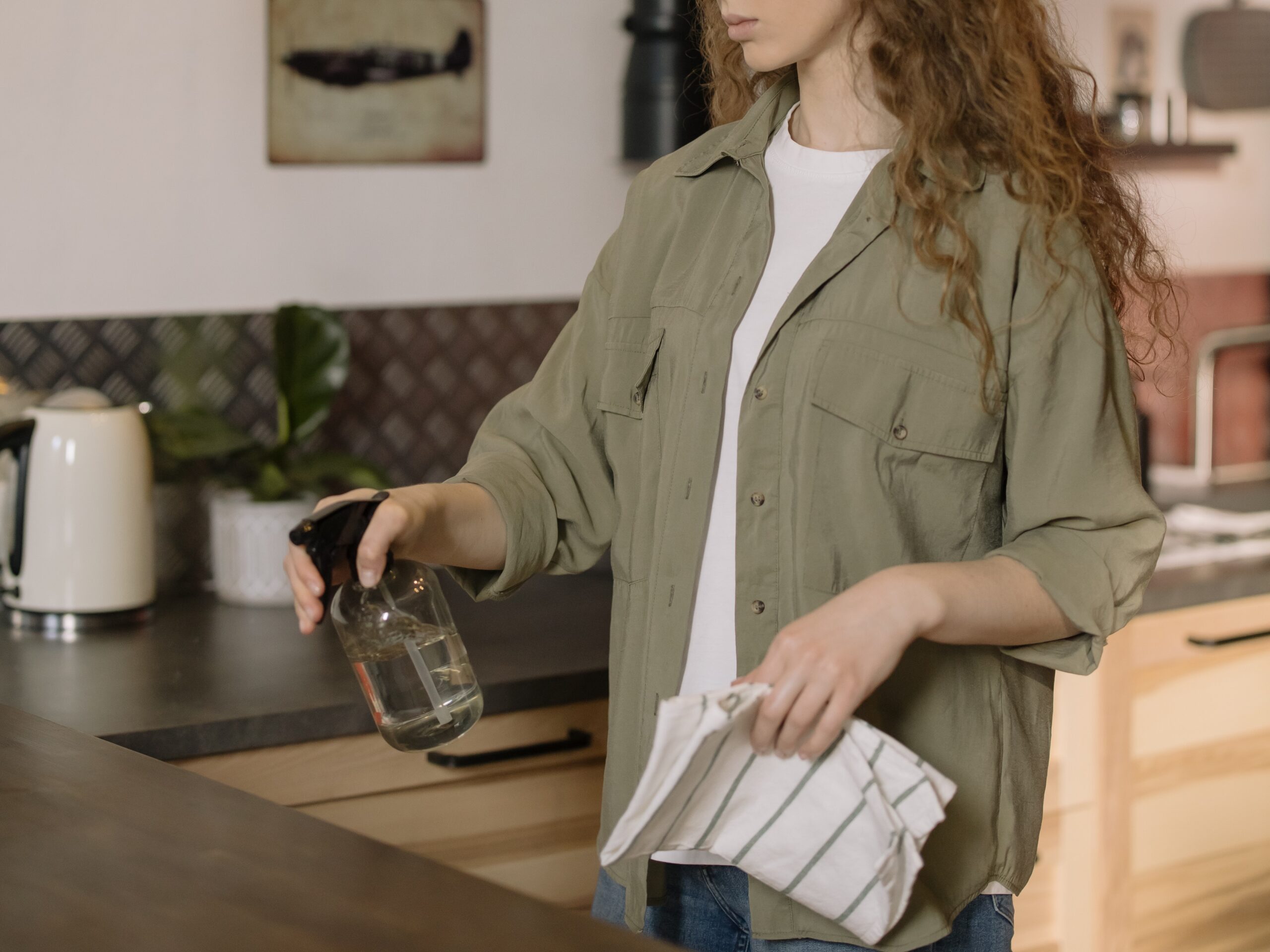
- Keep surfaces sanitized.
Because of the worldwide pandemic, we’ve become experts in sanitizing our homes. Practice the same diligence in the kitchen, and cooking up feasts for the holidays. To create a sanitizer, add 1/3 cup of plain chlorine bleach to one gallon of clean, fresh water. Use a spray bottle to clean surfaces and a sponge to wipe down the counter. Never use this solution on food.
- Wear a mask and limit number of persons in the kitchen.
Make Julia Child, Martha Stewart, or whoever your culinary hero proud. Keep your loved ones’ bellies happy with good food, while at the same time, keeping them safe from viruses.
You can do this by coming in complete with your kitchen gear: an apron, a mask, and food prep gloves. Also, limit the number of people prepping, cooking and baking to two to three people. This is to avoid sneezing or coughing that can contaminate the food, especially the ones that are prepared and served fresh or raw.
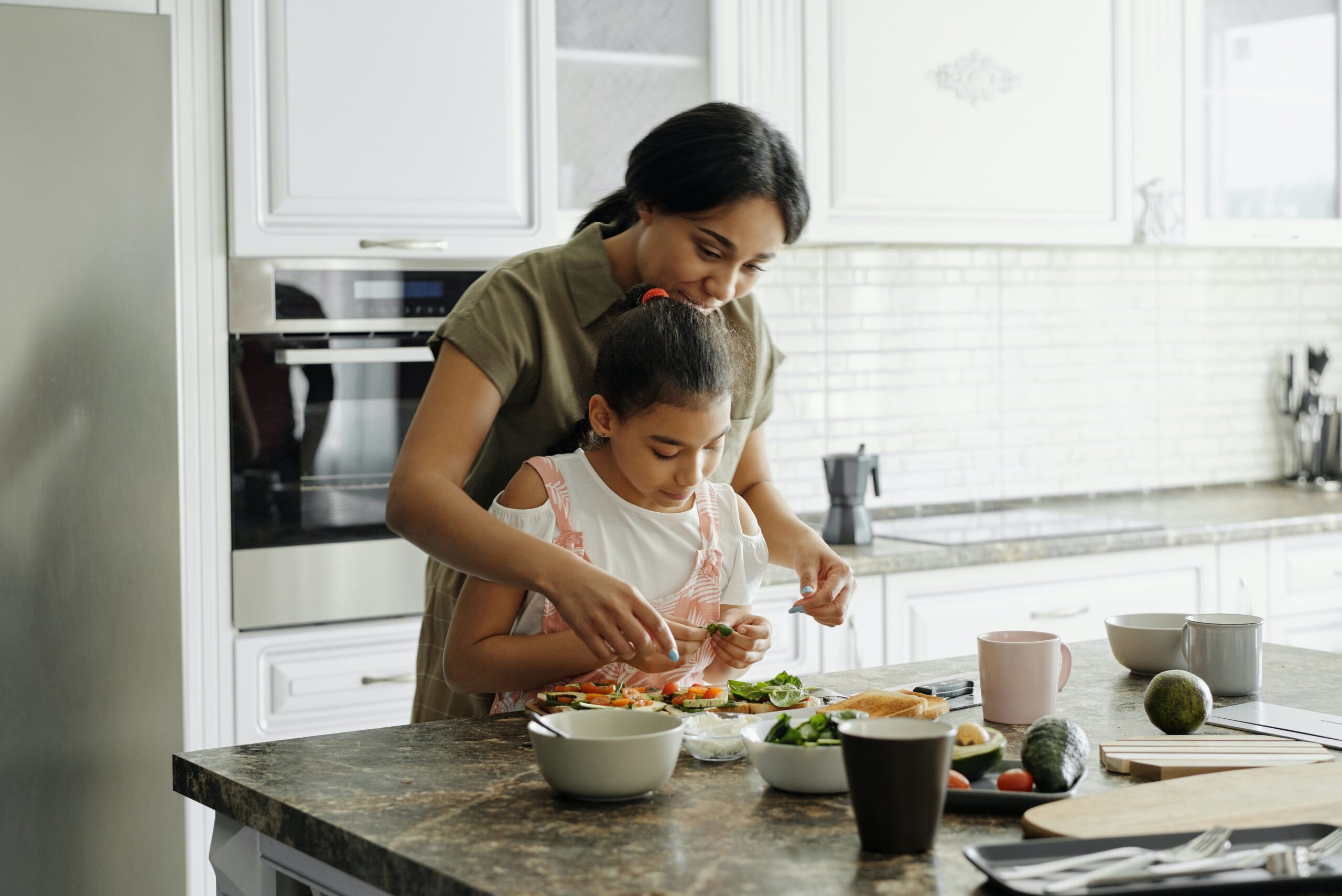
- Prepare ahead of time to avoid the stress and the rush.
The last tip is not a food safety guideline, but more like a mantra to live by. Plan ahead for the holidays to avoid joining the holiday hustle and bustle.
Prep early, and delegate tasks. Set yourself up for a stress and hassle-free groundwork. When you’re not in a rush, you’ll be able to avoid food safety hazards, and get to savor the process. Use these tips to prepare for the holiday season, and make the home safe and fun for everyone. Have a safe and happy holiday!
Tags
References:
Hopskins Medicine. ‘Tis the Season for Holiday Cooking Safety. https://www.hopkinsmedicine.org/health/wellness-and-prevention
Millard, E. (November 2, 2021). 7 Essential Food Safety Tips to Follow this Holiday Season. https://www.everydayhealth.com/diet-nutrition/holiday-food-safety-tips/
Centers for Disease Control and Prevention. https://www.cdc.gov/foodsafety/communication/holidays.html
Painters, S. (October 9, 2020). 15 Holiday Food Safety Tips to Remember. https://www.lovetoknowhealth.com/well-being/holiday-food-safety-tips
Lindberg, S. Here’s Why You Should be Washing all your producer before you use it. The Insider.
Hire, C. (no date). How to Reheat Leftovers. https://www.bbcgoodfood.com/howto/guide/how-reheat-leftovers


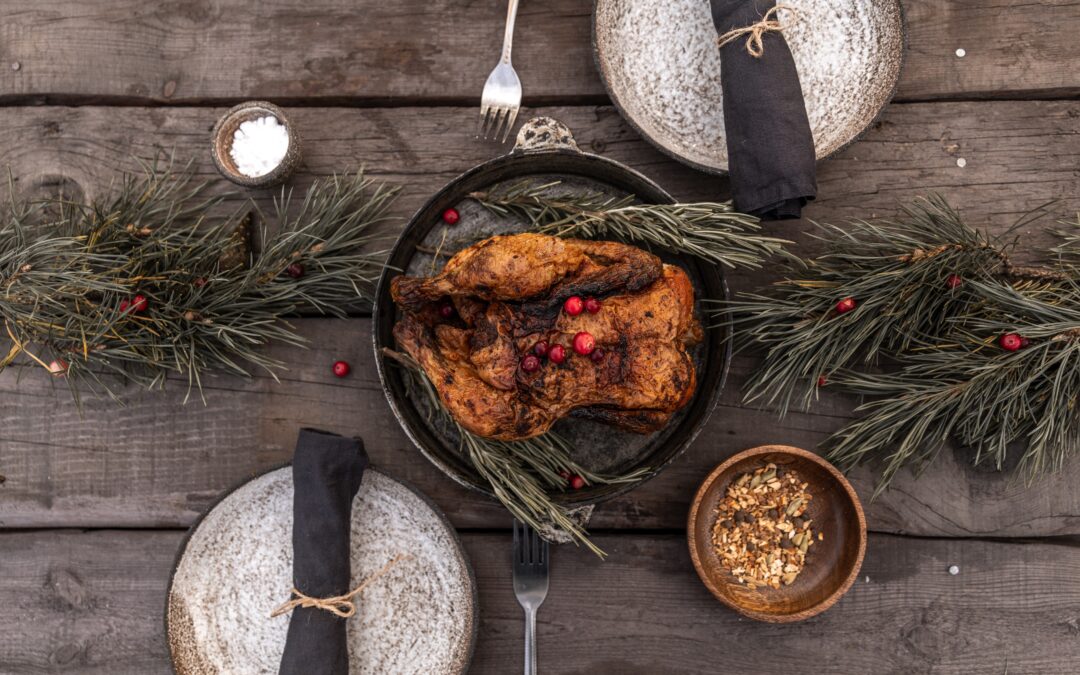
0 Comments